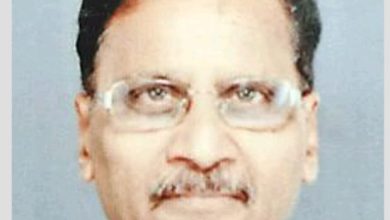Changing Political Dynamics: 2024 Election

Yash pal Ralhan
As the 2024 parliament elections in India draw closer, political parties have started engaging in what is commonly referred to as “political tourism.” An example of this is Nitish Kumar’s recent tours to Kolkata and Lucknow, despite his party having no stake in these states. This behaviour is indicative of the importance of the upcoming elections, as parties attempt to gain an advantage in the race for power. The term “political tourism” has been used to describe this phenomenon because parties are engaging in political activities in states where they have no political presence, simply to gain political mileage. In the past, we have seen similar behavior from Chandrababu Naidu, who failed to gauge the nation’s mood during the last elections. It is possible that Nitish Kumar may also find himself in a similar position after the 2024 election results are declared. It is important to note that Nitish Kumar’s party has not had much success in previous elections. In 2014, the party won only two seats, and in 2019, the RJD failed to win even a single seat. Given this track record, it is likely that history will repeat itself in Bihar, with voters preferring national parties over regional ones. In Uttar Pradesh, Chief Minister Yogi Adityanath is expected to win the most seats based on the government’s performance across various parameters, including law and order. Recently, three political parties lost their status as national parties, making it difficult for parties with no pan-India presence to garner support from the common voter. The political situation in Maharashtra remains unclear, and the fate of Rahul Gandhi’s criminal defamation case will have a significant impact on the political landscape. Meanwhile, the Karnataka assembly elections will be a litmus test for both the Congress and BJP. The Congress has promised many freebies, and the results will show whether voters are swayed by these promises. On the other hand, the BJP abolished four percent reservation for minorities and divided it among other castes, and the election results will reveal the impact of these caste combinations. The by-elections in Punjab and Uttar Pradesh will also be crucial in understanding the mood of the states regarding the law and order situation. The recent Supreme Court decision to refuse to hear the appeal of 14 opposition parties to protect them from the ED and CBI was a significant blow, and it is advisable for opposition parties to face voters instead of repeatedly approaching the court. There is a growing perception that opposition parties are uniting to protect themselves from the CBI and ED, rather than for the good of the nation. Furthermore, if there is no unity among opposition parties, it is possible that the Lok Sabha will not have a leader of the opposition for the third time in a row.
Following Karnataka, four assembly elections are scheduled for October 2023, and the results of Madhya Pradesh, Rajasthan, Chhattisgarh, and Telangana will have a direct impact on the 2024 parliament elections. Indian democracy has matured significantly, and voters have different preferences for assembly and parliament elections. In the last assembly elections in these states, the BJP did not win in any state, but a few months later, the party won the maximum seats in Rajasthan, Madhya Pradesh, and Chhattisgarh during the parliament elections. Political tourism is likely to continue as parties gear up for the 2024 elections. However, it is crucial to recognize the need for collective efforts to forge a common front against the ruling party in the national interest. The upcoming elections are critical for India’s political landscape, and parties must work hard to win the trust of the common voter.
(Writer is the Disability and Rights activists from Jalandhar. Views are personal)






